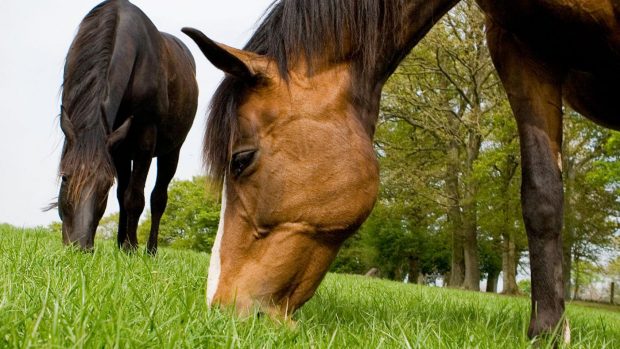Winter feeding
Read the latest winter feeding advice
Knowing how to feed horses during the winter can be a challenge. With little or no nutrition left in the grass, horses living out full-time will need their grazing supplemented with hay. They may also require hard feed to maintain their condition.
But if you have a good doer, the winter months are an ideal time to allow their condition to drop off as nature intended, so don’t be too keen to fill them up with nuts or mix. A good vitamin or mineral supplement or feed balancer fed with some chaff will ensure all their nutritional needs are met while allowing excess weight to be lost gradually. It’s healthy for a horse to go into spring looking slim, so when the spring grass comes through, they can put on condition without becoming overweight.
Horses that are stabled and remain in full work throughout the winter, either competing or hunting, will have higher energy requirements so may require complementary hard feed. Forage should remain their primary ration, in the form of either hay or haylage, with additional fibre-based or hard feed so they can maintain body condition and have sufficient energy to do their work.
If your horse is “buzzy” during the winter, provide calories through highly-digestible fibre — such as alalfa or sugarbeet — and oil, rather than through cereals such as oats or barley. If you are unsure about the best diet for your horse, check out the information below or speak to an independent equine nutritionist, who will be able to advise you.
Older horses, particularly those with poor teeth, can struggle in the winter and lose condition dramatically. High-fibre cubes soaked into a mash are a good addition or alternative to forage when chewing becomes difficult.


















